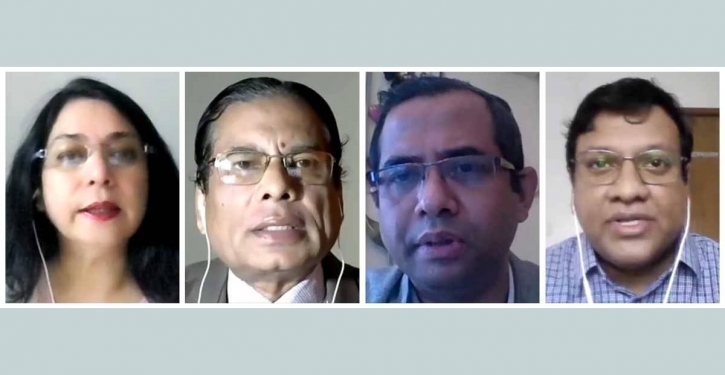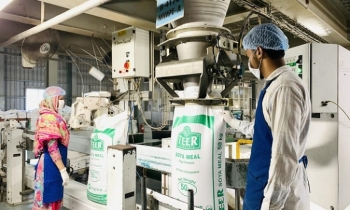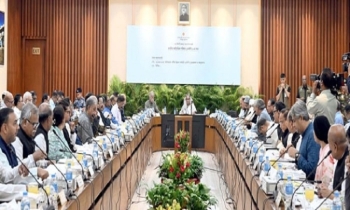Better recovery depends on healthy banking sector: CPD
BI Report || BusinessInsider

The governance of the banking sector will be an important determinant for better recovery of the economy from the fallout of the ongoing coronavirus pandemic, Centre for Policy Dialogue (CPD) said in a virtual discussion on Tuesday. Photo: Courtesy
The governance of the banking sector will be an important determinant for better recovery of the economy from the fallout of the ongoing coronavirus pandemic, Centre for Policy Dialogue (CPD) has said.
“Unfortunately, reforms in the banking sector remain outside the radar of the central bank at present,” said Dr Fahmida Khatun, executive director of CPD, while presenting a keynote paper on the monetary policy for fiscal 2021-22 in a virtual discussion on Tuesday.
Professor Mustafizur Rahman, distinguished fellow; Dr Khondaker Golam Moazzem, research director, and Towfiqul Islam Khan, senior research fellow, were also present at the briefing and responded to questions from the journalists.
In her presentation, she recommended that loan defaulters should not be allowed to access any of the Covid-19-related liquidity support packages, weak and poorly-governed banks should be barred from participating in the stimulus packages.
“Clear, objective, and quantitative criteria should be declared to properly identify ‘affected’ businesses and individuals. Transparency and accountability mechanisms should be built into all Covid-19 related liquidity support packages, and more disaggregated data on the implementation status of all liquidity support packages should be published on a monthly basis,” said Dr Fahmida.
She went on to say disbursement of the government’s Covid-19 liquidity support for small businesses, farmers, and low-income professionals should be expedited immediately.
The CPD said monetary policy has a crucial role in addressing the challenges created due to the pandemic. On the one hand, the economic crisis as a result of disruption in production and supply chains has led to economic contraction, loss of employment, and increased poverty. Inflation is creeping up, which will have an impact on purchasing power and demand, particularly for the poor and low-income families.
Besides, the banking sector has been responsible for disbursing loans under the stimulus packages announced by the government, said CPD adding that the banking sector also has a number of existing challenges, which need to be resolved in order to have a disciplined financial sector in the country.
The central bank has refrained from taking any active steps in reducing the prevailing excess liquidity in the banking system, but has assured that it will not hesitate to act if the need arises.
The CPD said the overall stance of the policy is expansionary, and in the words of the central bank, it is “accommodative”. It appears that the targets set for private sector credit growth and economic growth may not be met, considering the rapidly worsening Covid-19 situation at present.
“Inflation targets should be practical, based on updated consumption basket,” said Dr Fahmida.
“Finally, the governance of the banking sector will be an important determinant for better recovery of the economy. Unfortunately, reforms in the banking sector remain outside the radar of the central bank at present.”
The civil-society think-tank recommended that a multi-stakeholder taskforce involving representatives from various ministries, central bank, commercial banks, trade bodies, civil society, non-government organisations and academia should be formed for monitoring the delivery of the Covid-19 liquidity support and fiscal stimulus packages and assessing their effectiveness.
It also said a goal-specific, time-bound, inclusive, transparent, unbiased and independent Citizens Commission on Banking should be set up in order to bring transparency in the prevailing situation, identify the root causes of the manifest problems, and suggest credible measures for improving the situation sustainably.


























